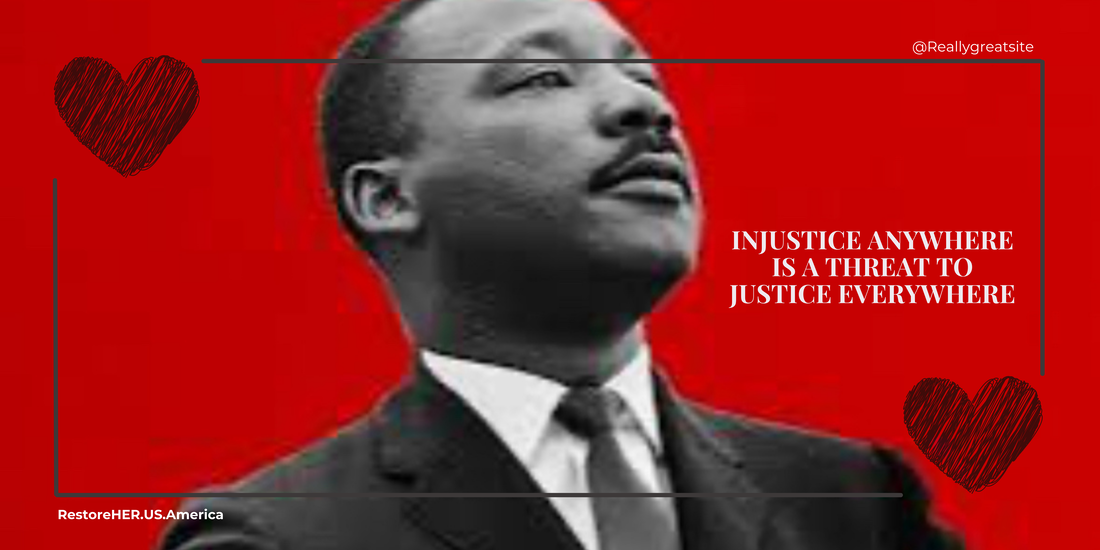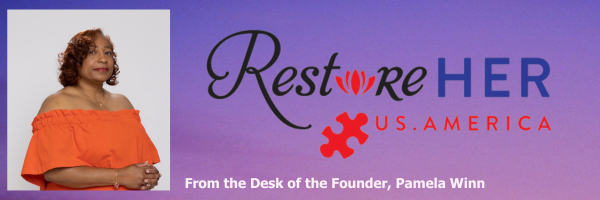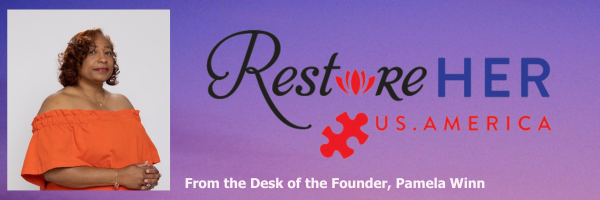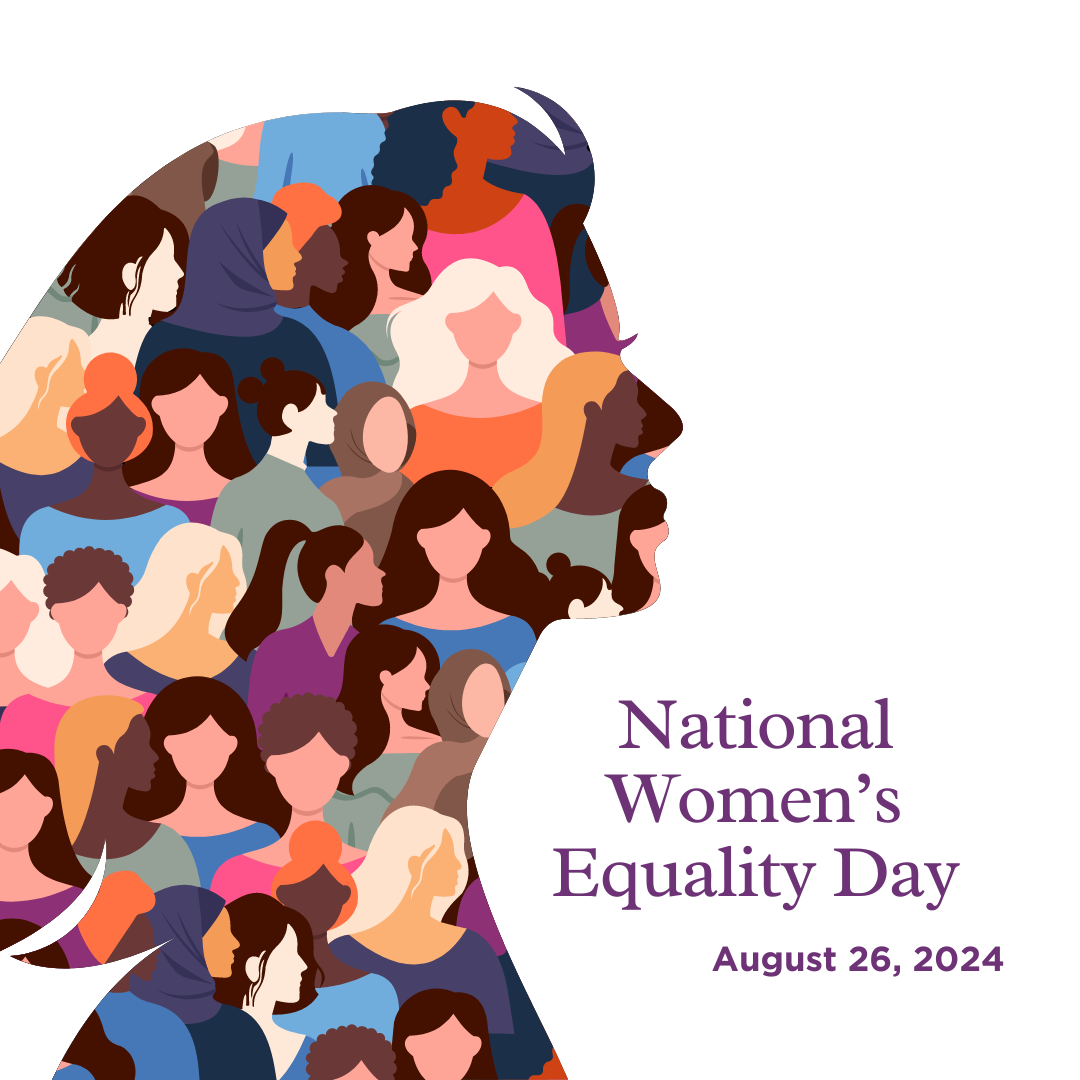|
Black History Month is not just a time of remembrance—it is a reminder of the ongoing struggle, resilience, and triumphs of Black Americans. However, the education and celebration of Black history should not be confined to February. It must be a continuous, daily commitment to reclaiming and preserving the legacy of our ancestors, understanding our critical role in shaping the United States, and actively working toward a collective future of empowerment and prosperity.
The Importance of Black Historical Education Understanding Black history is crucial because it reclaims a narrative that has been intentionally distorted, ignored, or erased. Black Americans have been integral to the economic, cultural, and political foundations of this nation, from building the wealth of America through enslaved labor to leading movements for democracy, justice, and civil rights. Education is a powerful tool that upholds pride, awareness, and agency in our community. Yet, we see a concerted effort to erase or dilute this education. Affirmative action, Diversity, Equity, and Inclusion (DEI) initiatives, and Black history itself are being systematically dismantled across institutions. This is not coincidental—it is a calculated move to maintain existing power structures and suppress Black progress. Without knowledge of our past, Black Americans become more susceptible to misinformation and systemic oppression. Therefore, we must take responsibility for teaching our history in our homes, communities, and institutions, ensuring that younger generations understand their worth, contributions, and potential. Black Americans and Systemic Oppression Despite our undeniable contributions, Black Americans remain disproportionately impacted by systemic oppression, particularly in the realms of the prison industrial complex, socioeconomic status, and healthcare. 1. The Prison Industrial Complex Black Americans, particularly Black men and women, are incarcerated at significantly higher rates than their white counterparts due to systemic racism embedded in policing, sentencing laws, and prison labor exploitation. The 13th Amendment legally abolished slavery “except as a punishment for crime,” which has allowed mass incarceration to function as a modern form of enslavement. Black Americans, who make up about 13% of the U.S. population, account for nearly 40% of the prison population. 2. Economic Disparities Centuries of institutional racism have created a massive racial wealth gap. From denied access to land ownership (e.g., Black farmers losing land), redlining, discriminatory banking practices, and lack of generational wealth, Black Americans have been systemically blocked from economic mobility. Even today, Black workers face wage discrimination, and Black businesses struggle due to limited access to funding and resources. 3. Health Disparities Black Americans experience higher rates of chronic illnesses such as hypertension, diabetes, and maternal mortality due to systemic healthcare neglect, medical racism, and environmental injustices (e.g., Flint’s water crisis). The COVID-19 pandemic further exposed these disparities, proving that health inequities are deeply rooted in structural racism. The Need for Daily Action and Collective Unity If Black Americans are to reclaim their power, education must become a daily practice, not an annual observance. This means:
Incarcerated Black Women and Black History When discussing Black history, the experiences of incarcerated Black women must not be overlooked. Black women are the fastest-growing prison population, often victims of intersecting oppressions related to racism, sexism, and economic disadvantage. Many are incarcerated for non-violent offenses, often tied to survival crimes (e.g., theft due to poverty, drug-related offenses due to addiction or coercion by abusive partners). The criminalization of Black women has historical roots—Black women were subjected to brutal treatment during slavery, denied protections during Reconstruction, and continue to be ignored in modern justice reform efforts. The neglect of Black women’s incarceration in mainstream discussions mirrors the broader disregard for Black women’s contributions and struggles. Final Thoughts: A Call to Action Black History Month must be a launchpad for lifelong education, unity, and resistance against oppression. Black Americans must control their narratives, uplift their communities, and forge paths toward economic and social liberation. The fight for justice includes addressing mass incarceration, economic disparities, healthcare inequities, and historical erasure. Incarcerated Black women, often the forgotten voices of the justice system, must be recognized in Black history discussions. Their stories reflect the ongoing struggles of Black Americans and the urgent need for systemic change. Black history is every day. Our future depends on what we do now.
0 Comments
World Breast Pumping Day, observed annually on January 27, highlights the importance of breastfeeding and the challenges faced by lactating individuals, including those who pump milk to support their infants. The day brings attention to workplace accommodations, access to resources, and the need for equity in breastfeeding support. For incarcerated women, the ability to breastfeed or pump milk is often severely limited or nonexistent, adding another layer of inequality in reproductive health and parenting rights.
The recent anniversaries of Roe v. Wade, which was overturned by Dobbs v. Jackson Women’s Health Organization in 2022, continue to generate intense discussions about reproductive rights in the United States. The Supreme Court’s decision to overturn the constitutional right to abortion significantly reshaped the reproductive health landscape, with many states implementing restrictive laws or outright bans on abortion. These changes disproportionately impact marginalized groups, including incarcerated women, who face additional barriers to reproductive care. Breast Pumping in Prisons For incarcerated women, access to breast pumping is limited by logistical, institutional, and systemic barriers. Many prisons lack policies that support breastfeeding or pumping milk, despite the well-documented benefits for both mothers and infants. Programs that allow incarcerated mothers to pump and send breast milk to their babies are rare, even though such initiatives have been shown to improve maternal health, enhance bonding, and contribute to better infant outcomes. When these programs are unavailable, incarcerated mothers face the pain of being separated from their newborns without a means of providing nutrition or maintaining a connection. This lack of support reflects broader inequities in how reproductive health is addressed within the criminal justice system. Abortion and Reproductive Rights in Prisons The overturning of Roe v. Wade has profound implications for incarcerated women. Access to abortion is already restricted within prisons due to logistical, legal, and financial hurdles. With new state-level bans and restrictions, incarcerated women in many jurisdictions face insurmountable obstacles to obtaining an abortion. These barriers can include a lack of access to transportation, inadequate medical care, and limited legal recourse. For incarcerated women who wish to carry pregnancies to term, prison environments are often hostile to reproductive health. Inadequate prenatal care, lack of autonomy during childbirth, and the trauma of being shackled while giving birth are well-documented issues. Broader Implications Both breast pumping and abortion access are critical aspects of reproductive health that are often overlooked in discussions about incarcerated women. The broader climate of reproductive rights highlights systemic inequalities that disproportionately affect women of color, low-income individuals, and those entangled in the criminal justice system. Advocates argue that addressing these issues requires systemic change, including:
By bringing attention to these issues, World Breast Pumping Day and the continuing debate around Roe v. Wade can serve as calls to action to address the unique reproductive health challenges faced by incarcerated women. The Women’s CARE Act (WCA) is a legislative effort that seeks to address the unique challenges faced by incarcerated women, particularly around reproductive health, parenting, and maternal care. It advocates for deferred and alternative sentencing for pregnant and parenting women, emphasizing the importance of family preservation, maternal autonomy, and improved health outcomes for both mothers and their children. WCA was passed in Colorado 2023. How the Women’s CARE Act Supports Reproductive Health and Breastfeeding 1. Autonomy Over Pregnancy and Reproductive Health Deferred or alternative sentencing would allow pregnant women to remain in their communities rather than being incarcerated, granting them greater access to prenatal care, childbirth services, and reproductive health resources. Many prisons are ill-equipped to provide the consistent, high-quality medical care that pregnant individuals need, often leading to adverse maternal and fetal outcomes. By keeping women out of incarceration during pregnancy, the CARE Act enables them to:
WCA would empower mothers to breastfeed and bond with their infants in ways that incarceration often prevents. Women allowed to serve alternative sentences can pump milk or nurse their babies directly, fostering physical and emotional well-being for both mother and child. These bonding opportunities are crucial for early childhood development and maternal mental health. 3. Support for Parenting and Family Preservation Alternative sentencing programs often include comprehensive parenting support, education, and community resources that help women maintain family connections. By avoiding incarceration, mothers can stay actively involved in their children’s lives, reducing the intergenerational effects of incarceration and improving long-term outcomes for their families. 4. Mitigating the Impact of Abortion Restrictions With the overturning of Roe v. Wade and the patchwork of abortion laws across states, incarcerated women face even more significant challenges in accessing abortion care. Deferred sentencing allows women to seek reproductive healthcare, including abortion, without the logistical and legal barriers posed by the prison system. This approach respects their reproductive autonomy and reduces the harm caused by restrictive abortion policies. Broader Implications of the Women’s CARE Act WCA aligns with the principles of reproductive justice, which emphasize the right to have children, not have children, and parent children in safe and supportive environments. By addressing the intersection of incarceration and reproductive health, the act promotes:
Call to Action Advocates for reproductive justice, maternal health, and criminal justice reform are urging policymakers to support the Women’s CARE Act as a critical step in addressing the inequities faced by incarcerated women. By prioritizing deferred and alternative sentencing, WCA provides a pathway for mothers to maintain autonomy over their pregnancies, breastfeed their infants, and parent their children with dignity and support. This approach not only benefits individual women and their families but also represents a more humane and equitable vision for the criminal justice system. WCA has bipartisan support from the ACU and ACLU. If you’d like to more information, visit: https://www.restoreher.us/womenrsquos-care-act.html  Today, January 20, 2025, is a historic and multifaceted moment in American life, combining reflection, celebration, and critical social commentary. On one hand, the nation honors the legacy of Dr. Martin Luther King Jr., a champion of civil rights, justice, and equality, whose dream continues to inspire generations. On the other hand, it also marks the inauguration of Donald Trump, whose political ideology of populist conservatism has sparked deep debate over the future of American democracy, social policies, and the pursuit of equity. Honoring Dr. Martin Luther King Jr. Dr. King’s legacy as a leader of the civil rights movement is being recognized nationwide through acts of service, educational programs, and discussions on justice and equality. His calls for nonviolent resistance against systemic racism and his dream of a nation judged by the “content of character” are being highlighted in speeches, marches, and public service projects. Many communities are using this day to address modern challenges tied to racial and economic inequality, voter suppression, and systemic bias. Donald Trump’s Inauguration Simultaneously, Donald Trump is being inaugurated as president, representing a resurgence of populist conservatism in American politics. His policies and rhetoric, which emphasize national sovereignty, economic protectionism, and cultural conservatism, have galvanized a significant portion of the electorate. However, his administration has also faced criticism for its approach to civil rights, particularly regarding immigration, healthcare, and criminal justice reforms. Gender Inequities in Incarceration On this day of reflection and political transition, it’s essential to spotlight an ongoing civil rights issue often overlooked: the gender inequities faced by incarcerated women, particularly those who are pregnant. The number of incarcerated women in the U.S. has risen dramatically in recent decades, disproportionately affecting women of color and those from low-income communities. Many pregnant women behind bars face inadequate healthcare, poor nutrition, and insufficient support during and after childbirth. In some cases, they endure the trauma of giving birth while shackled or being separated from their newborns immediately postpartum. This issue highlights broader systemic problems, including the criminalization of poverty, lack of access to reproductive healthcare, and limited rehabilitation opportunities for women. RestoreHER US.America advocates for the Women’s CARE Act offering alternatives to incarceration for pregnant women, access to comprehensive prenatal care, and policies that prioritize family unity and rehabilitation over punitive measures. Reflection and Action Today’s convergence of honoring Dr. King’s vision and inaugurating a president with a vastly different ideological outlook underscores the tensions within America’s ongoing pursuit of justice and unity. It’s a moment to reaffirm commitments to equity, whether by addressing racial injustice, challenging policies that exacerbate inequality, or advocating for the rights of the most marginalized—including incarcerated women. As the nation navigates these complexities, Dr. King’s words remain a guiding light: “The arc of the moral universe is long, but it bends toward justice.” Pamela Winn President RestoreHER US.America  As we reflect on 2024, we are overwhelmed with gratitude for your unwavering support. This year, RestoreHER US.America achieved incredible milestones in the fight for justice, equity, and dignity for women impacted by incarceration, domestic violence, and systemic inequities. Your partnership made these successes possible. Highlights from Our Transformative Year 1. Advancing Legislative Change: We introduced the Women’s CARE Act in California, Alabama, and Georgia, successfully advancing through the Public Safety and Judiciary Committees. This crucial legislation moves us closer to ending the inhumane practice of prison births and ensuring equitable treatment for incarcerated pregnant women. 2. Hosting the First T.R.A.S.H. HERvalue Symposium and Retreat:We brought together women from across the country directly impacted by domestic violence, sexual assault, and pregnancy behind bars. Through art, film, poetry, and spoken word, these women shared their stories, raising awareness of the challenges they have faced. The symposium concluded with a healing retreat, where participants found community and fellowship, followed by a “Lunch n Learn” focused on advocacy. This event was a testament to resilience and the power of collective action. 3. Supporting Senator Ossoff’s Investigation: We worked alongside Senator Jon Ossoff, providing written testimony for his investigation into the abuse of pregnant women in prison, further amplifying the voices of those who have endured these injustices. 4. Advancing Research on Maternal Healthcare Costs: In partnership with Columbia University students, we led a groundbreaking project researching maternal healthcare costs, quality of care, and the total number of incarcerated women in the states where our legislation is active. 5. Empowering Future Leaders: We provided training for Spelman College’s Social Justice Program, supporting the next generation of advocates dedicated to social equity and systemic change. 6. Expanding Our Team and Leadership: We welcomed Kaila Pouncy as our Program/Policy Manager, strengthening our capacity to drive meaningful change. Our President, Pamela Winn, was appointed Commissioner for the Women’s Justice Commission and joined the HARP Advisory Council, further expanding our influence and advocacy. 7. Celebrating International Women’s Day in Abu Dhabi: In partnership with Forbes, we celebrated International Women’s Day in Abu Dhabi, elevating our mission on a global stage and advocating for women’s rights worldwide. 8. Enhancing Civic Engagement and Voter Education in Georgia:IMPPACT (Informing Marginalize Peoples’ Power And Cultivating Transformation) engaged millions of Georgians through traditional and digital outreach through campaigns focused on voting rights for eligible justice-impacted people, including those eligible under the SB105 Probation Reform Act and organizing civic engagement events that reached and registered thousands of Georgians. Looking Ahead… As we move into 2025, we remain steadfast in our mission to dismantle inequities and build a world where women are treated with dignity, justice, and care. Thank you for standing with us through every step of this journey. Your support has been the driving force behind these accomplishments, and we are excited to continue this work together. With gratitude and hope, Pamela Winn President RestoreHER US.America P.S. Let’s keep the momentum going! Please consider making a year-end contribution HERE to support our work in 2025. Every action you take makes a difference.  Today, I woke up to a profound sense of disappointment and confusion following the United States presidential election results. It is difficult to process the reality that a person with a well-documented history of racism, misogyny, and a blatant disregard for the pillars of democracy—someone who has incited violence, faced numerous indictments for election interference, attempted to undermine the electoral process, falsified documents, committed fraud, and accrued a staggering 34 felony convictions—has been chosen to lead this nation. How can we reconcile this decision, especially when it represents the voice of so many Americans, some of whom are my neighbors, colleagues, and friends? People who know who he is, what he’s done, and yet cast their ballots in his favor. This outcome raises questions that go beyond politics. What does it mean about our collective values as a nation? As a society, we often hold individuals accountable for their misdeeds, condemning those with felony convictions to a lifetime of exclusion and punishment, even after they’ve served their time. For these individuals, there is no grace, no opportunity to prove they can be better. They face a wall of over 40,000 collateral consequences that prevent them from fully reentering society, building better lives, and contributing to their communities. Yet here, we have granted grace to someone who has repeatedly shown disdain for the rule of law and respect for others. For those of us impacted by the justice system, who know firsthand the challenges of trying to overcome mistakes and rebuild lives, this election feels like a slap in the face. It is disheartening to see a nation willing to overlook serious transgressions at the highest levels while punishing everyday people for far less. This double standard not only reveals a painful inconsistency in how we value accountability but also perpetuates a message that some are simply above the law. It’s a call for reflection on the character of our country. Are we, as Americans, content to accept leaders who defy the very standards we hold ordinary citizens to? This moment challenges us to reconsider our sense of justice, equity, and compassion. If we are to move forward as a unified nation, we must reckon with the ways in which our choices contradict our stated values. My hope is that we use this moment to examine not just our political divisions but the underlying principles we claim to uphold as a society. For a truly just and compassionate future, we must demand more of ourselves—and more of those we choose to lead us. In Solidarity, Pamela Winn President & Founding Director RestoreHER US.America In the heart of the United States, a nation that prides itself as the bastion of democracy and freedom, a paradox unfolds. Here, in this "land of the free," where individuals risk everything for a promise of liberty, the shadows of oversight extend even into the sanctum of our democratic rights—our right to vote. Georgia stands as a poignant example of this contradiction, participating in the Electronic Registration Information System (ERIC), a multistate information-sharing initiative designed to police voter registrations by identifying voters who have moved or passed away. This system, however, is just the tip of the iceberg in a series of measures that seemingly aim to safeguard electoral integrity but, in reality, serve as mechanisms of voter suppression.
Brad Raffensperger, Georgia's Secretary of State, recently announced plans to cancel 191,000 "inactive" voter registrations with thousands more already canceled, praising Georgia's voter rolls as the "cleanest in the nation." This act is not isolated; it follows a history of purging that saw a record 534,000 registrations canceled in 2017. While the intent is proclaimed to be the preservation of electoral integrity, one cannot help but see the underlying currents of disenfranchisement, particularly against the most vulnerable populations, including the formerly incarcerated. In Georgia, those with a completed felony sentence, meaning they are no longer on probation or parole, regain their right to vote. This distinction importantly includes those who still owe fines, fees, or restitution. Moreover, individuals incarcerated but not convicted of a felony are also eligible to vote. Despite these allowances, the reality is starkly different for formerly incarcerated individuals, who face disproportionate challenges, such as homelessness and housing instability—issues that significantly increase their likelihood of being categorized as "inactive" voters and thus, susceptible to being purged from voter rolls. The narrative of disenfranchisement is personal to many, including myself, a former homeowner turned homeless after serving a 78-month federal sentence for a white-collar crime. My journey, marked by constant relocation due to housing discrimination, underscores a critical flaw in the system: being marked inactive and subsequently purged from voter rolls does not equate to a lack of interest or intent to participate in the democratic process. It is a byproduct of systemic barriers that unjustly silence voices. In response to these challenges, organizations like RestoreHER US.America have taken significant steps to empower and educate the formerly incarcerated about their voting rights, while also working to reform the system. Initiatives like SB105, which potentially shortens probation periods and thereby reinstates voting eligibility sooner, alongside educational efforts through the IMPPACT program, aim to combat voter suppression and reinvigorate democratic participation among marginalized communities. Yet, the question remains: Why should the act of registration, a declaration of one's intent to participate in democracy, be subject to cancellation based on turnout or personal circumstances that prevent engagement in every electoral cycle? The essence of democracy is not just the act of voting but the right to vote—the assurance that one's voice can be heard when they choose to speak. As we reflect on the state of our democracy, it becomes clear that the true measure of our nation's commitment to freedom and justice is not in the cleanliness of our voter rolls, but in the inclusivity of our electoral process. The efforts to police the vote, under the guise of maintaining electoral integrity, reveal a disconcerting willingness to sacrifice the democratic principles of accessibility and equality for administrative convenience. The path forward must involve a reevaluation of our priorities, shifting focus from policing the vote to empowering it. Policies and practices that disproportionately impact the most vulnerable, disenfranchising them either directly or through the creation of insurmountable barriers, must be critically examined and reformed. Our democracy is only as strong as the voices it includes, and it is time we ensure that every voice, especially those that have been silenced or marginalized, is heard. In this endeavor, we are called not only to challenge the systems in place but to advocate for a more inclusive, equitable, and just democratic process. This is the essence of the American promise—the true realization of a land where freedom and democracy are not just ideals, but realities for all. In Solidarity, Pamela Winn, President & Founding Director, RestoreHER US.America Justice Impacted Women’s Equality Day: The Silent Struggle of Women in the Criminal Legal System8/26/2024 Women are the givers of life, a role that should hold them in the highest regard. Yet, in a nation entrenched in patriarchy and classism, women have historically experienced subordination that has led them to believe in the normative of a life suppressed in silence, meekness, and domestication. This systemic oppression has been pervasive, affecting every aspect of women's lives, including those who find themselves entangled in the criminal legal system. Justice impacted women—those who have been arrested, incarcerated, or otherwise involved in the criminal legal system—are among the most marginalized and overlooked groups in the fight for gender equality.
On August 26th, we observe National Women’s Equality Day. In recent decades, women have increasingly taken up the mantle of addressing inequality, combating issues such as domestic and sexual violence, wage disparity, lack of access to education, inadequate healthcare, and the right to vote. Through tireless campaigning, legal battles, and mass mobilizations, women have sought to change laws, shift societal norms, and demand that their rights be respected and protected. However, despite these efforts, justice impacted women continue to be overlooked, excluded from broader conversations about gender equality, and subjected to a criminal legal system designed primarily with men in mind. Over 80% of justice impacted women are primary caregivers and mothers. These women are often criminalized for their lived experiences, which include domestic violence, sexual abuse, and poverty—circumstances that are frequently beyond their control. For example, many women who are incarcerated have been victims of domestic violence, and their criminal charges often stem from acts of survival, such as defending themselves against an abuser. Yet, instead of receiving the support and protection they need, these women are funneled into a punitive system that criminalizes their response to trauma. The impact of this criminalization is profound. Approximately one million justice impacted women are disenfranchised, stripped of their right to vote and participate in the democratic process. This disenfranchisement extends beyond the walls of prisons and jails; it is a lifelong punishment that serves to silence and marginalize women who already face significant barriers to equality. Incarcerated women face numerous indignities and human rights violations, often rooted in the fact that the criminal legal system was not designed with their needs in mind. For example, incarcerated women are frequently provided with men’s clothing, recycled underwear, and a lack of feminine hygiene products. Gender-specific programming is often non-existent, and access to necessary gynecological care is limited, if not outright denied. In some cases, women are subjected to unwanted medical procedures, further stripping them of their autonomy and bodily integrity. The situation is even more dire for pregnant women in prison. These women are often deprived of access to abortion, proper nutrition, and adequate perinatal or postpartum care. They may be forced to endure induced labor without adequate support, and after giving birth, they are typically allowed only two hours with their newborns before the child is taken away. In a cruel twist of fate, these mothers are then given just 24 hours to select a caregiver to pick up their babies, or they risk losing their parental rights altogether. These injustices reflect a broader societal assumption that justice impacted women have no rights, or at least no rights worth protecting. Yet, the reality is that these women share the same plight for equality as any other woman. They are mothers, daughters, sisters, and friends who deserve to be treated with dignity and respect, regardless of their involvement with the criminal legal system. The fight for women’s equality cannot be fully realized until we address the unique challenges faced by justice impacted women. This requires a fundamental shift in how we view and treat women within the criminal legal system. Instead of criminalizing their survival strategies, we must provide them with the support and resources they need to heal from trauma and rebuild their lives. This includes access to mental health services, educational and vocational training, and reentry programs that are designed specifically for women. Moreover, we must challenge the systemic injustices that disproportionately impact women of color, poor women, and LGBTQ+ women within the criminal legal system. These women are often doubly marginalized, facing discrimination not only because of their gender but also because of their race, socioeconomic status, or sexual orientation. By centering the experiences of the most vulnerable women in our advocacy efforts, we can begin to dismantle the oppressive structures that perpetuate inequality and create a more just and equitable society for all. Justice impacted women are not voiceless; their voices have been silenced by a system that refuses to listen. RestoreHER US.America is a voice for justice impacted women, fighting for their dignity, reproductive rights, safety, and equality. It is time for society to recognize the humanity of these women and to acknowledge their right to equality, both inside and outside the criminal legal system. Only then can we begin to create a world where all women are truly free and equal. ~Pamela Winn, Founding Director, RestoreHER The fabric of society is woven by various unique threads, each integral to the overall strength and resilience of the community. Among these, women hold a distinct place, carrying the profound capability of motherhood. This ability is not just a biological function but a cornerstone for the future of humanity. Yet, in our society, there are environments where the sanctity and vulnerabilities associated with motherhood are not only ignored but are blatantly violated. This is especially true for incarcerated women, who face conditions that starkly contradict any society that claims to value life and motherhood.
The United States stands at a critical juncture regarding women’s health, particularly maternal and infant health. As it stands, maternal and infant mortality rates are alarmingly high, an issue that extends into the lives of incarcerated women, whose plight remains largely invisible. When a woman enters the penal system, she does not forfeit her human rights, nor does she relinquish the rights of the unborn child she may be carrying. Yet, the treatment of pregnant women in prisons starkly reflects a society that has turned its back on its most vulnerable. Incarcerated pregnant women face unimaginable hardships. Chains are often wrapped around their bellies, applying unnecessary pressure on the fetus. The nutritional needs of pregnant women are grossly unmet, with meals that are not only nutritionally inadequate but sometimes expired. The environment of incarceration—hard iron beds, flat mats, or even floors—is far from conducive to a healthy pregnancy. Perhaps more harrowing is the medical neglect these women face. Without adequate prenatal care, complications that could otherwise be managed become life-threatening. Postpartum care is also woefully inadequate, leaving women to face the aftermath of childbirth alone and unsupported. This can result in severe physical and psychological consequences. Furthermore, it’s not uncommon for these women to be left in solitary confinement to give birth alone without medical assistance, a situation that can lead to devastating outcomes, including the loss of the baby. The issue extends beyond individual neglect to a systemic failure. Although laws such as the Dignity for Incarcerated Women’s Act as well as the Women’s CARE Act (aiming to defer sentences for pregnant women until 12 weeks postpartum) have been passed, the implementation is spotty and inadequate. This Act is a critical step toward addressing these issues as it not only provides a window for necessary perinatal care but also ensures that mothers and babies have essential bonding time which is vital for the infant's development. However, the systemic issues in our penal institutions, which are fundamentally not designed to accommodate pregnant women, continue to perpetuate these atrocities. The situation reflects a broader societal contradiction—while states increasingly legislate on matters of reproductive rights and claim to protect unborn lives, the reality for many pregnant women in prison tells a different story. This dichotomy highlights a glaring gap between proclaimed values and actual practices. Moreover, as the country grapples with a maternal-infant mortality crisis, the experiences of incarcerated pregnant women remain underreported and are often excluded from the data, rendering them invisible. This omission is not just a gap in data but a significant barrier to understanding and addressing the scope of the issue. It is time for a comprehensive reevaluation of how we treat incarcerated women, especially those who are pregnant. If we are to truly uphold the values of life and motherhood we so fervently claim to cherish, actions must align with words. Passing and implementing the Women’s CARE Act is not just a matter of legal reform; it is a moral imperative. We must ensure that all mothers, irrespective of their circumstances, have access to the care and dignity they deserve. This is not merely a policy issue—it is a profound moral and ethical obligation that speaks to the very essence of who we are as a society. In a nation that prides itself on justice and human rights, the conditions and treatment of pregnant women in prisons should be an outrage to us all. It’s a poignant reminder that in the quest for justice and equality, the path is long and arduous, but also that every step taken towards empathy and reform is a step towards a more humane society. Let this not just be a legislative priority, but a national reflection on our values and our commitment to upholding the dignity of every life. #EndPrisonBirth |
AuthorPamela Winn – President and Founding Director Archives
February 2025
Categories |
Monday - Friday 9:00 am - 5:00 pm
Saturday Closed I Sunday Closed
Saturday Closed I Sunday Closed
© RestoreHER US.America All rights reserved.










 RSS Feed
RSS Feed